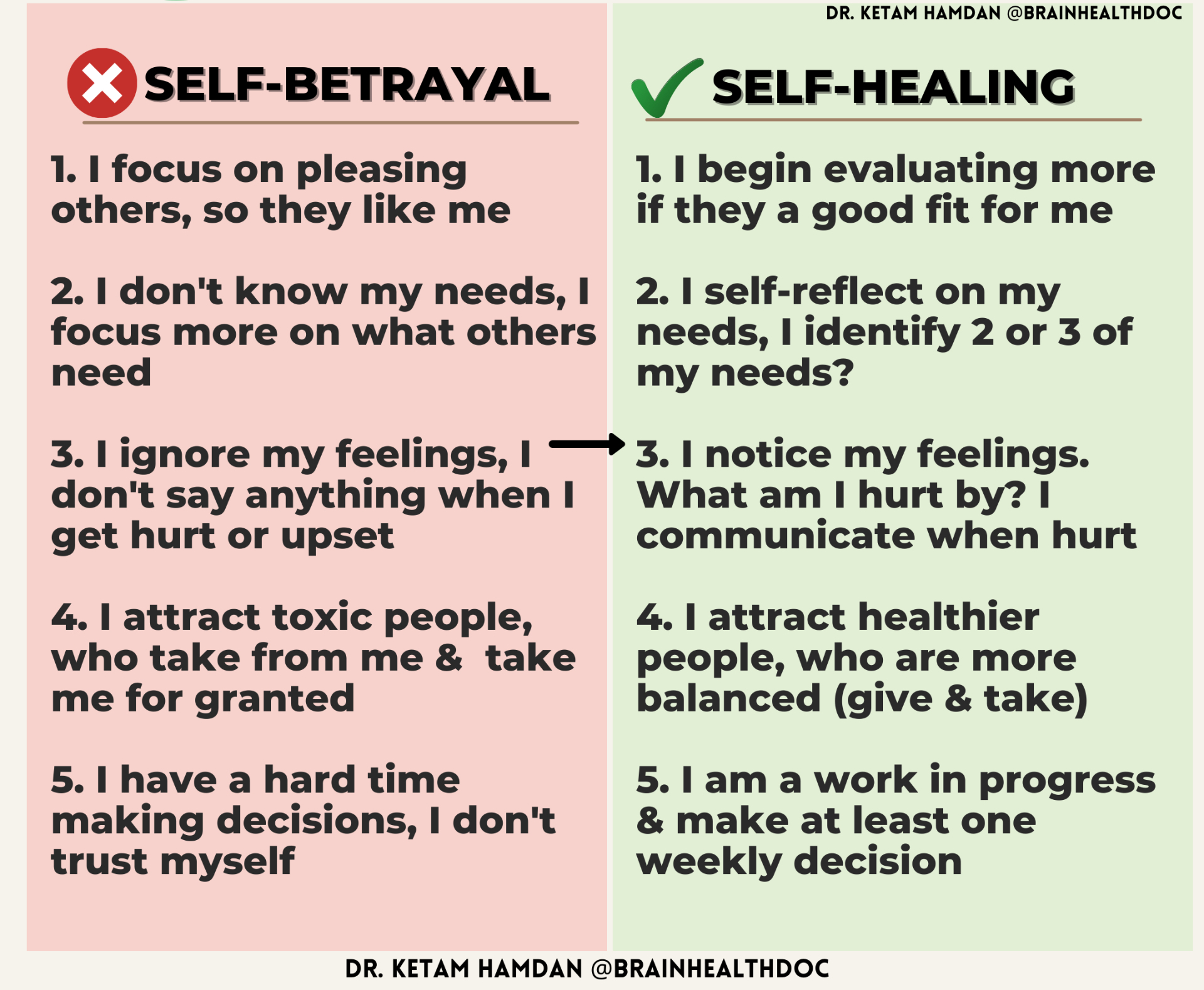Self-Betrayal & How to Stop It?

It is important to realize that no one intends to betray themselves. In fact, most of us have no clue how we betray ourselves because we never learn what it looks like to honor ourself.
Self-betrayal is a developmental wound. A person who betrays themselves grew up honoring the needs of parents or others over their own. You most likely learned or developed the belief that your needs are not important. As a result, you disowned needs and wants all together.
As a result, it is common to be dependent on others for approval and often find yourself people pleasing to feel good enough.
Self betrayal has destructive elements because we most likely
- End up in relationships that result in us being taken for granted and not honored the way we deserve
- We people please and put the needs of others before our own
- We do not trust our gut instinct or honor our internal discomfort.
- We feel we don’t have the right to communicate upsets or desires, after all growing up this never or rarely happened. So why would it happen now.
Many of my clients come to therapy when the pain of self-betrayal is no longer bearable. In essence, they have spent many years of their life trying to please others so they will be loved and liked, but only end up being hurt or abandoned by those same people they bent over backwards for.
I have learned that transformation starts when the pain of staying as is, is greater than the pain needed to change. It is usually when someone hits rock bottom or goes through a painful life experience that they are ready to change.
What most people do not realize is that if you are busy betraying yourself, it most likely means you are not loving yourself. So it can be assumed that the opposite of self-betrayal is self-love. Not self-love in the ego sense of me, myself, and I and the world only revolves around me. Self-love in a more healthy sense, which entails honoring your whole self who deserves to be valued and is worthy of love by self and others, more balanced relationships of give and take. The journey of transformation becomes a journey of self-love and learning to live a more balanced, whole life.
Overall, I can summarize 4 key steps:
- Define your needs so you can become aware of them and honor your needs – for example, do you need someone who is consistent in how the communicate, do you want balanced friendships who communicate equally and you are not making more of the effort, do you want relationships where you are not the only one remembering special days
- Take responsibility for your feelings – if a friend or loved one hurts you, you begin to notice the hurt. Instead of suppressing the hurt. You finally take the courage to communicate what hurt you and what you need from them next time
- Figure out & communicate your boundaries – if a boundary is that your friends respect your values, such as you don’t drink, then they do not pressure you to drink. If a boundary you have is that when you are at work, you don’t check social media and respond to messages, then you don’t feel guilty for this boundary
- Make and keep daily promises to yourself – for example, if you set limits on your phone for social media, try to at least honor these time limits a few times a week. If you decide to workout 5 days a week, you work out even if it’s only 20 minutes a day. Whatever it is, practice setting 2 or 3 goals and follow through on them


